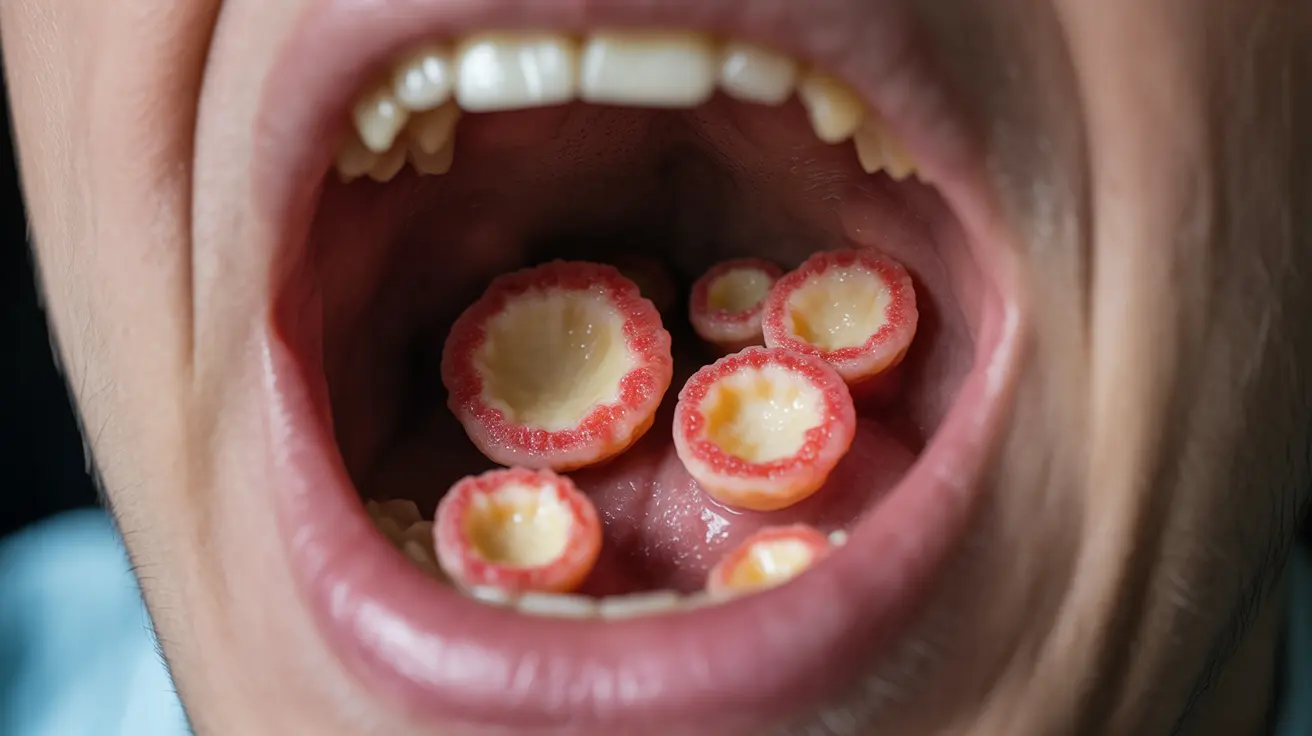Living with Crohn's disease can present various challenges, and one particularly uncomfortable symptom that many patients experience is the development of mouth sores. These painful ulcers can significantly impact daily activities like eating, drinking, and speaking, making it crucial to understand their relationship with Crohn's disease and how to manage them effectively.
While Crohn's disease is primarily known for affecting the digestive tract, its inflammatory nature can manifest in various parts of the body, including the mouth. Understanding the connection between Crohn's and oral complications can help patients better manage their symptoms and know when to seek medical attention.
Understanding Crohn's-Related Mouth Sores
Mouth sores in Crohn's disease, also known as oral aphthous ulcers, are a common extraintestinal manifestation of the condition. These sores typically appear as painful, round, or oval-shaped lesions with a white or yellowish center and a red border. They can develop on various surfaces within the mouth, including:
- Inside the cheeks
- On the tongue
- Along the gum line
- Inside the lips
- On the roof of the mouth
The Relationship Between Crohn's Disease and Oral Health
Mouth sores in Crohn's disease often occur due to the same inflammatory processes that affect the intestines. The immune system's irregular response can trigger inflammation in the mouth's soft tissues, leading to ulcer formation. These sores may appear during disease flare-ups or, in some cases, serve as an early warning sign of an impending flare.
Managing Crohn's-Related Mouth Sores
Immediate Relief Measures
Several strategies can help provide relief from the discomfort of Crohn's-related mouth sores:
- Saltwater or baking soda rinses
- Over-the-counter oral pain gels
- Avoiding spicy, acidic, or rough-textured foods
- Using a soft-bristled toothbrush
- Staying hydrated with room-temperature water
Medical Treatments
Healthcare providers may recommend various treatments specifically targeted at managing mouth sores, including:
- Topical corticosteroid preparations
- Prescription mouth rinses
- Systemic medications that address both intestinal and oral symptoms
- Special oral pastes or gels designed for ulcer treatment
Prevention and Long-term Management
While it's not always possible to prevent mouth sores entirely, certain practices can help reduce their frequency and severity:
- Maintaining good oral hygiene
- Regular dental check-ups
- Avoiding known trigger foods
- Managing stress levels
- Following prescribed Crohn's disease treatment plans
Frequently Asked Questions
What causes mouth sores in people with Crohn's disease? Mouth sores in Crohn's disease are primarily caused by the same inflammatory processes that affect the digestive system. The immune system's abnormal response can trigger inflammation in the mouth's soft tissues, leading to ulcer formation.
How can I treat or manage Crohn's-related mouth sores effectively? Treatment options include saltwater rinses, topical medications, prescription mouth rinses, and systemic treatments that address both oral and intestinal symptoms. Avoiding trigger foods and maintaining good oral hygiene are also important management strategies.
Are mouth sores an early sign of Crohn's disease or do they only appear during flare-ups? Mouth sores can occur at any stage of Crohn's disease. They may appear as an early symptom before diagnosis, during active flare-ups, or even during periods of relative remission. Some patients experience them as an early warning sign of an impending flare.
Can Crohn's medications cause mouth sores as a side effect? Yes, some medications used to treat Crohn's disease can potentially cause mouth sores as a side effect. If you suspect your medications are causing or worsening mouth sores, consult your healthcare provider before making any changes to your treatment plan.
When should I see a doctor about persistent or severe mouth sores related to Crohn's disease? Seek medical attention if mouth sores persist for more than two weeks, are severely painful, interfere with eating or drinking, or are accompanied by fever. Also consult your doctor if the sores are increasing in size or frequency, as this might indicate the need for adjustments to your Crohn's disease treatment plan.




